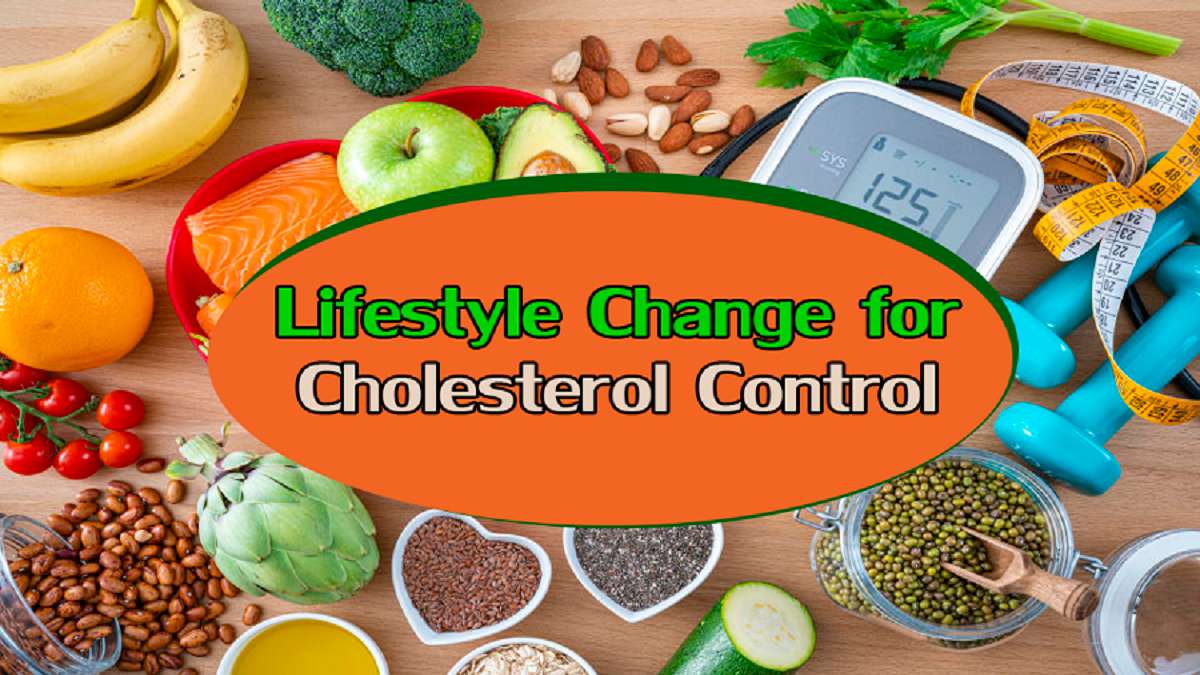Lifestyle changes : Controlling high cholesterol often requires more than just medication—it involves adopting lifestyle changes that promote heart health and overall well-being. By making conscious choices in our daily routines, we can effectively manage cholesterol levels and reduce the risk of heart disease and other related conditions.
Lifestyle changes : Some tips for controlling high cholesterol
- Regular Exercise:
- Engage in at least 150 minutes of moderate-intensity aerobic exercise or 75 minutes of vigorous-intensity aerobic exercise per week.
- Include activities such as brisk walking, jogging, swimming, or cycling.
- Maintain a Healthy Weight:
- Achieving and maintaining a healthy weight can positively impact cholesterol levels.
- Combine a balanced diet with regular physical activity to help manage weight.
- Quit Smoking:
- Smoking not only damages blood vessels but also lowers HDL (good) cholesterol. Quitting smoking can have numerous health benefits, including improving cholesterol levels.
- Limit Alcohol Intake:
- If you consume alcohol, do so in moderation. Limiting alcohol intake may help raise HDL cholesterol levels.
- Manage Stress:
- Chronic stress can contribute to unhealthy lifestyle choices and may impact cholesterol levels. Incorporate stress-reducing activities such as meditation, yoga, deep breathing, or hobbies.
- Regular Health Check-ups:
- Schedule regular check-ups with your healthcare provider to monitor cholesterol levels and overall cardiovascular health.
- Follow the prescribed medications or treatments as recommended by your healthcare professional.
- Adequate Sleep:
- Aim for 7-9 hours of quality sleep per night. Lack of sleep may contribute to unhealthy lifestyle habits and impact cholesterol levels.
- Hydration:
- Stay adequately hydrated by drinking plenty of water throughout the day. Hydration is important for overall health and well-being.
- Limit Caffeine Intake:
- While moderate caffeine intake is generally safe, excessive consumption may be linked to higher cholesterol levels in some individuals. Be mindful of your caffeine intake from coffee, tea, and energy drinks.
- Social Support:
- Surround yourself with a supportive social network. Having positive relationships can contribute to overall well-being and may indirectly impact lifestyle choices.
- Regular Health Screenings:
- In addition to cholesterol checks, ensure that you undergo regular screenings for other risk factors such as blood pressure, diabetes, and other cardiovascular markers.
Remember, individual responses to lifestyle changes can vary, and it’s essential to work closely with your healthcare provider to create a personalized plan that suits your specific health needs. Making sustainable lifestyle changes gradually over time is often more effective than attempting drastic alterations all at once.
